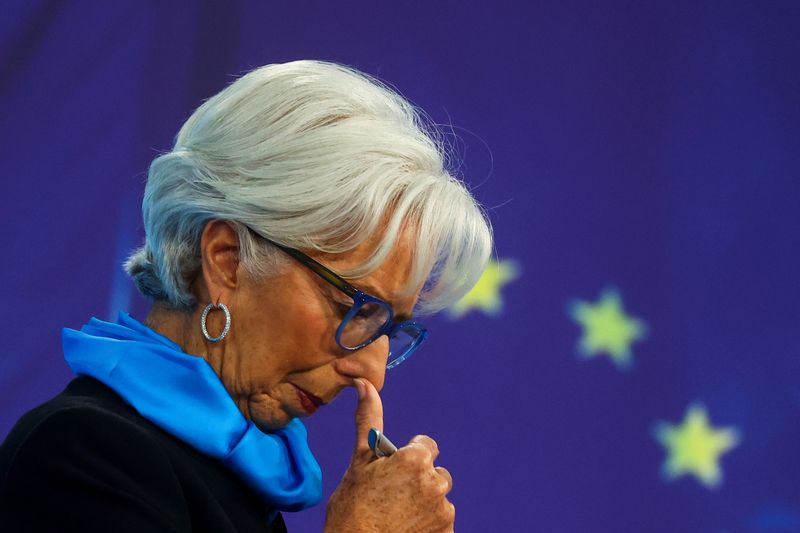By Laura Sánchez
Investing.com - European markets are undecided this Friday, with the Ibex 35, CAC 40, and DAX awaiting the U.S. employment report and the pending statements of central bankers.
This week, we learned that the inflation in the Eurozone rose by 10% in November, compared to the 10.4% estimated by the consensus and much lower than the previous 10.6%.
This data pleased investors and encouraged forecasts that the European Central Bank (ECB) would reduce its rate hike pace at its next meeting this month, and follow a strategy similar to that of U.S. Federal Reserve (Fed).
However, not all experts hold this conviction.
Hugo Le Damany and François Cabau, economists at AXA Investment Managers, point out that, core inflation remains at 5% year-on-year, although it is too early to indicate a decisive turnaround in the inflation outlook. Given the limited details available, we believe it is slightly biased by seasonal factors.
As a result, this data is unlikely to change the ECB's stance at the December meeting, added the analysts.
In fact, Christine Lagarde, president of the European Central Bank (ECB) stressed this Friday that "monetary policy is complicated by three uncertainties. Including the global economy and CPI developments," and said that "central banks must work to make sure CPI falls back to target" set by the agency.
"What we central bankers have to do is to actually deliver a monetary policy that anchors expectations... We need to signal to the public, to the observers, to the commentators, that in all scenarios, inflation will return to our medium term target in a timely manner," Lagarde said, in remarks reported by Reuters.
"Inflation data is likely to be sufficient to give the doves on the ECB board the upper hand at the December meeting. Even though yesterday’s data did not provide a convincing picture of falling inflation pressure due to the heavy fluctuation of energy prices. But for now, it is quite possible that inflation might have peaked in the euro zone too. That means the ECB is likely to continue moving in sync with the Fed and also reduce the speed of its rate hikes," Commerzbank reports FXStreet.
Mauro Valle, head of fixed income at Generali Investments Partners, explains that if the economy's growth is clearly weaker, combined with high inflation, this would force the ECB to end its hiking cycle.
On the other hand, in the event of an inflation ceiling in the coming months and a subsequent decline, the ECB will probably have to continue raising rates, but in the first few months of next year it will have to pause, the analyst adds.
